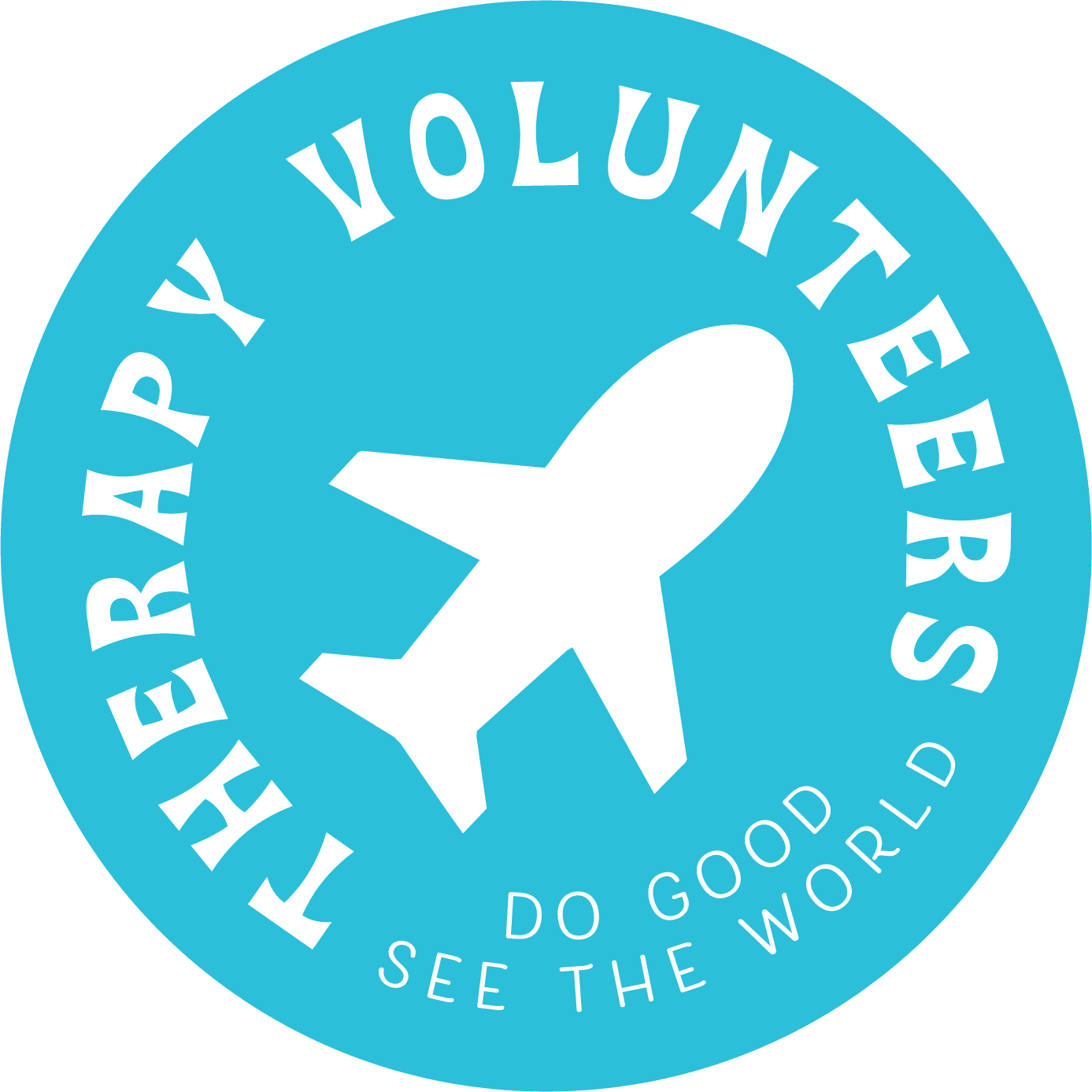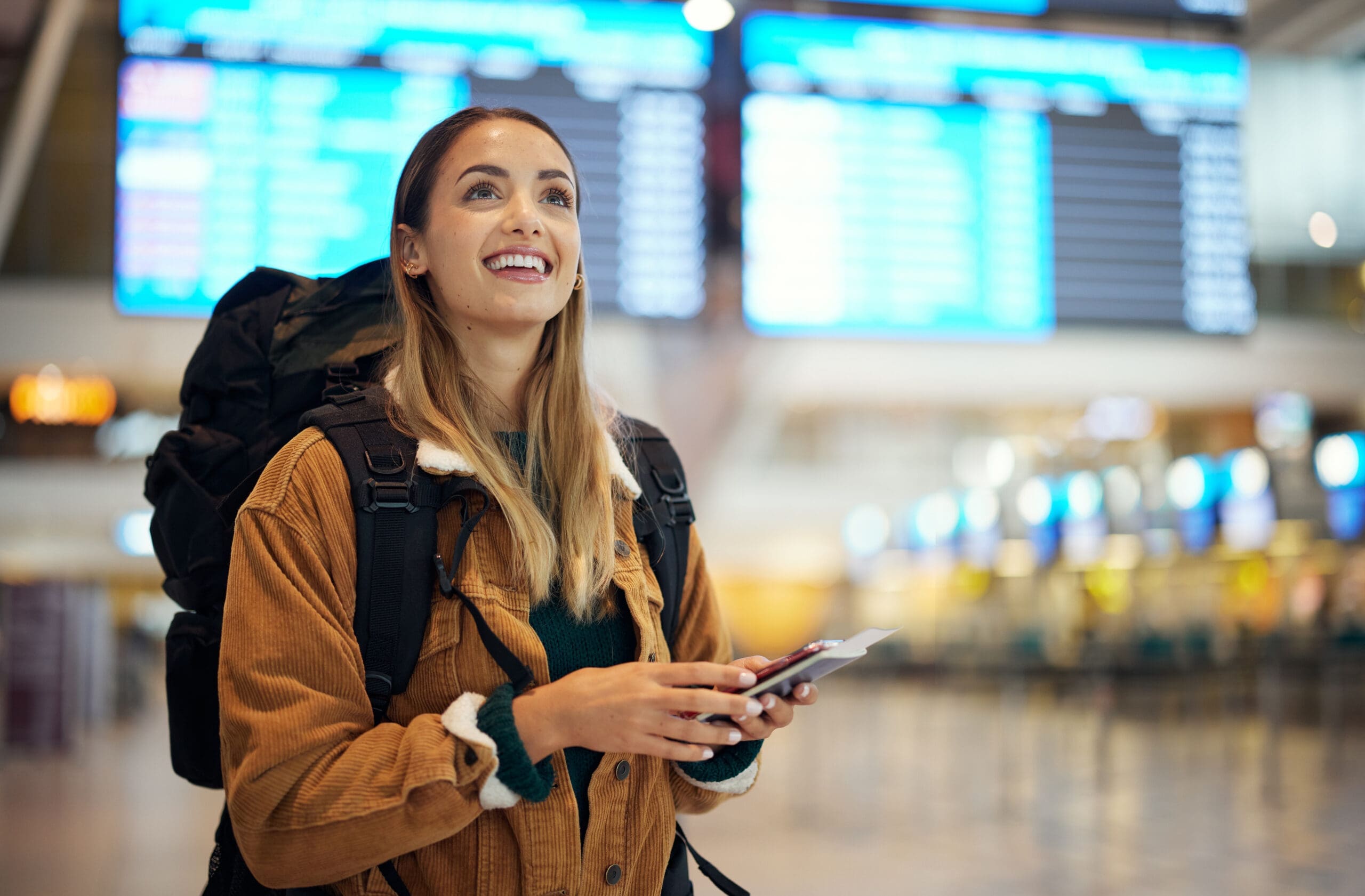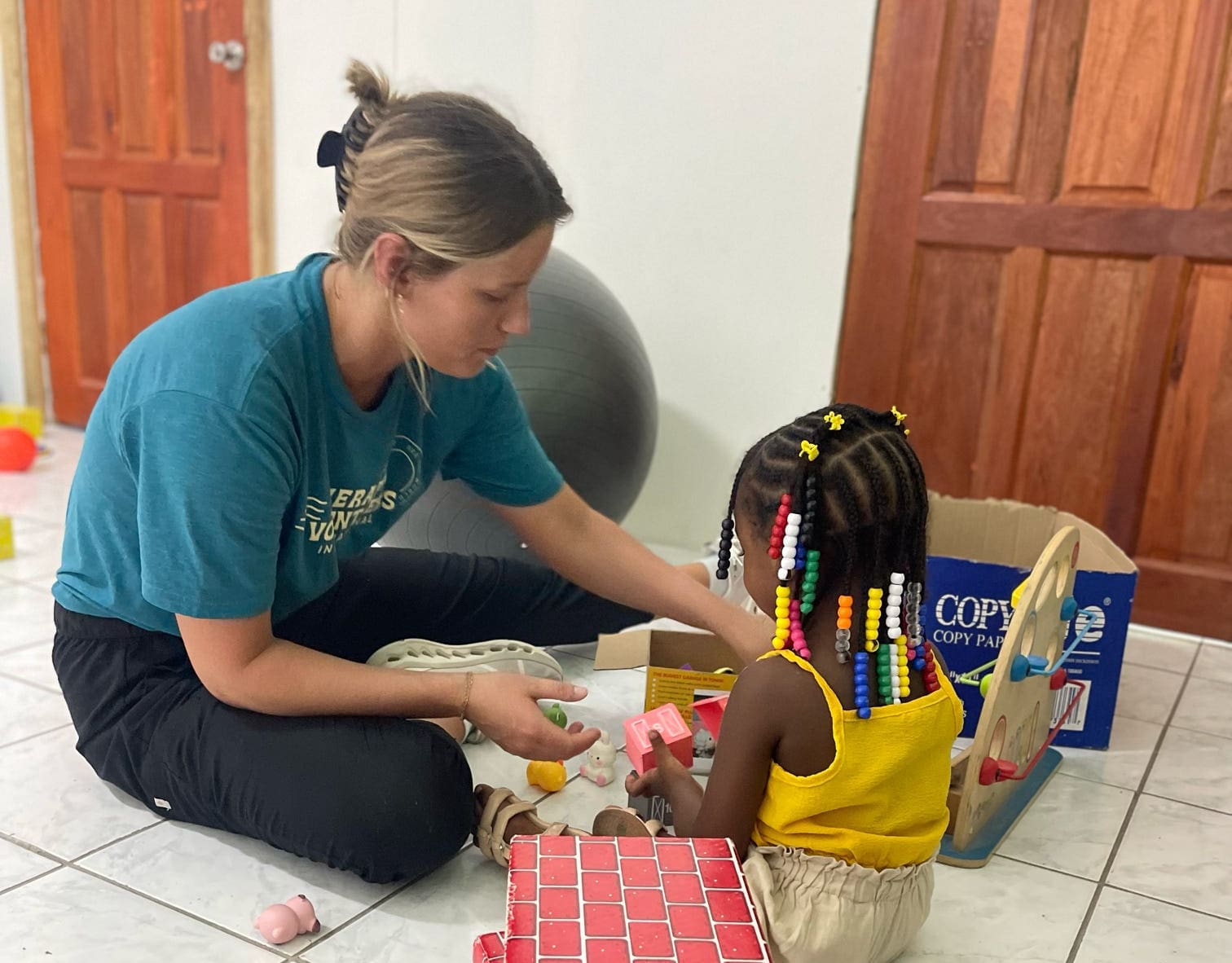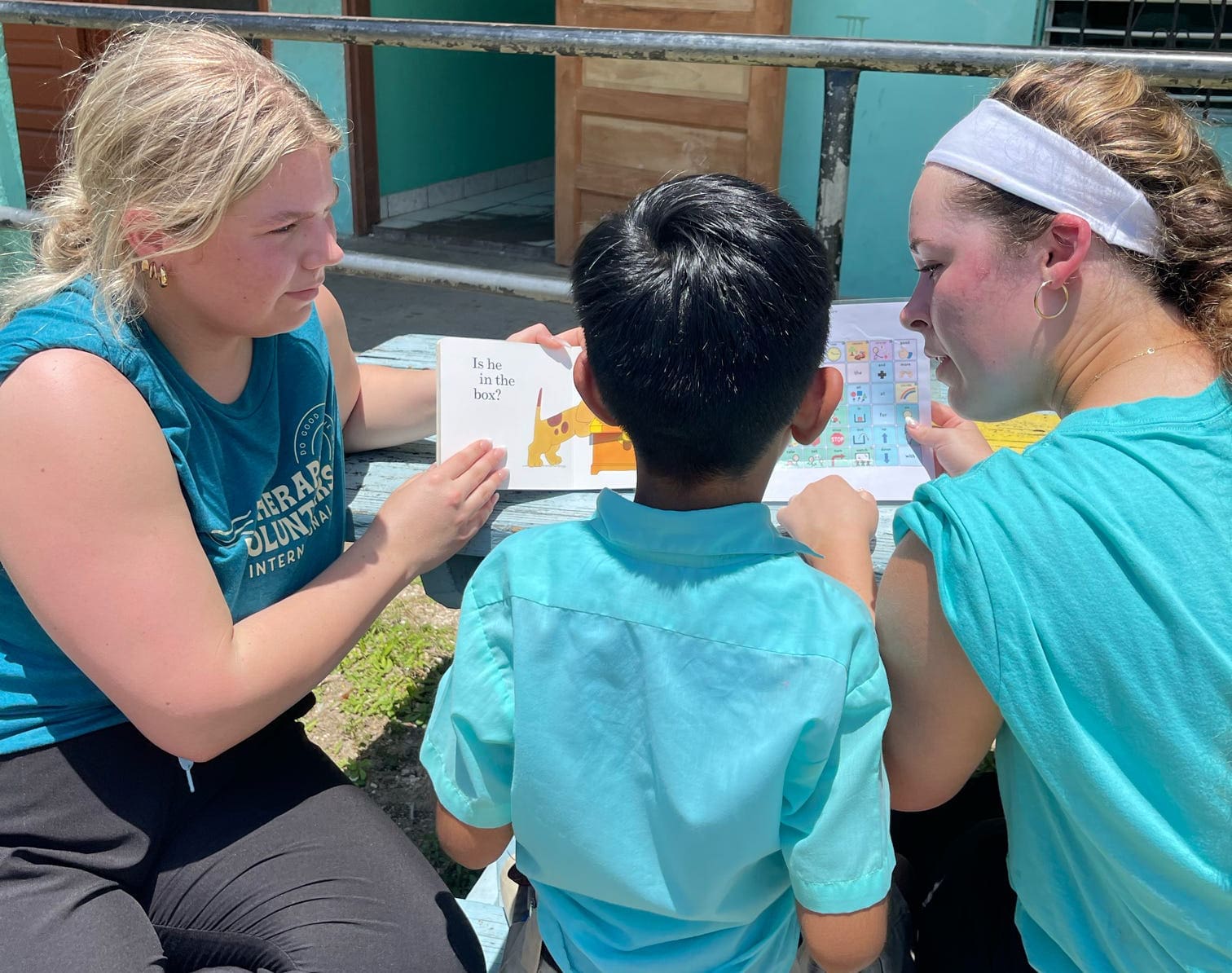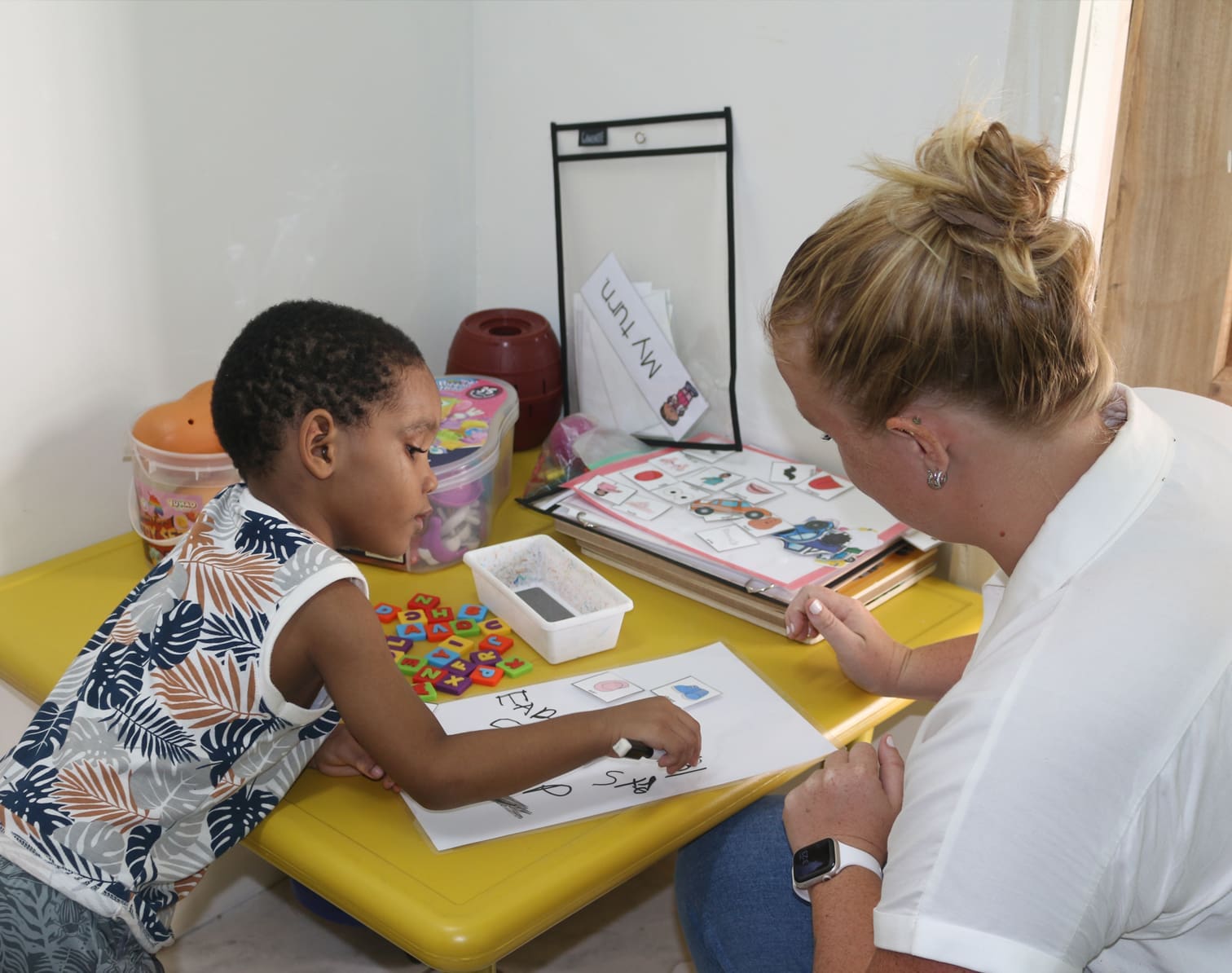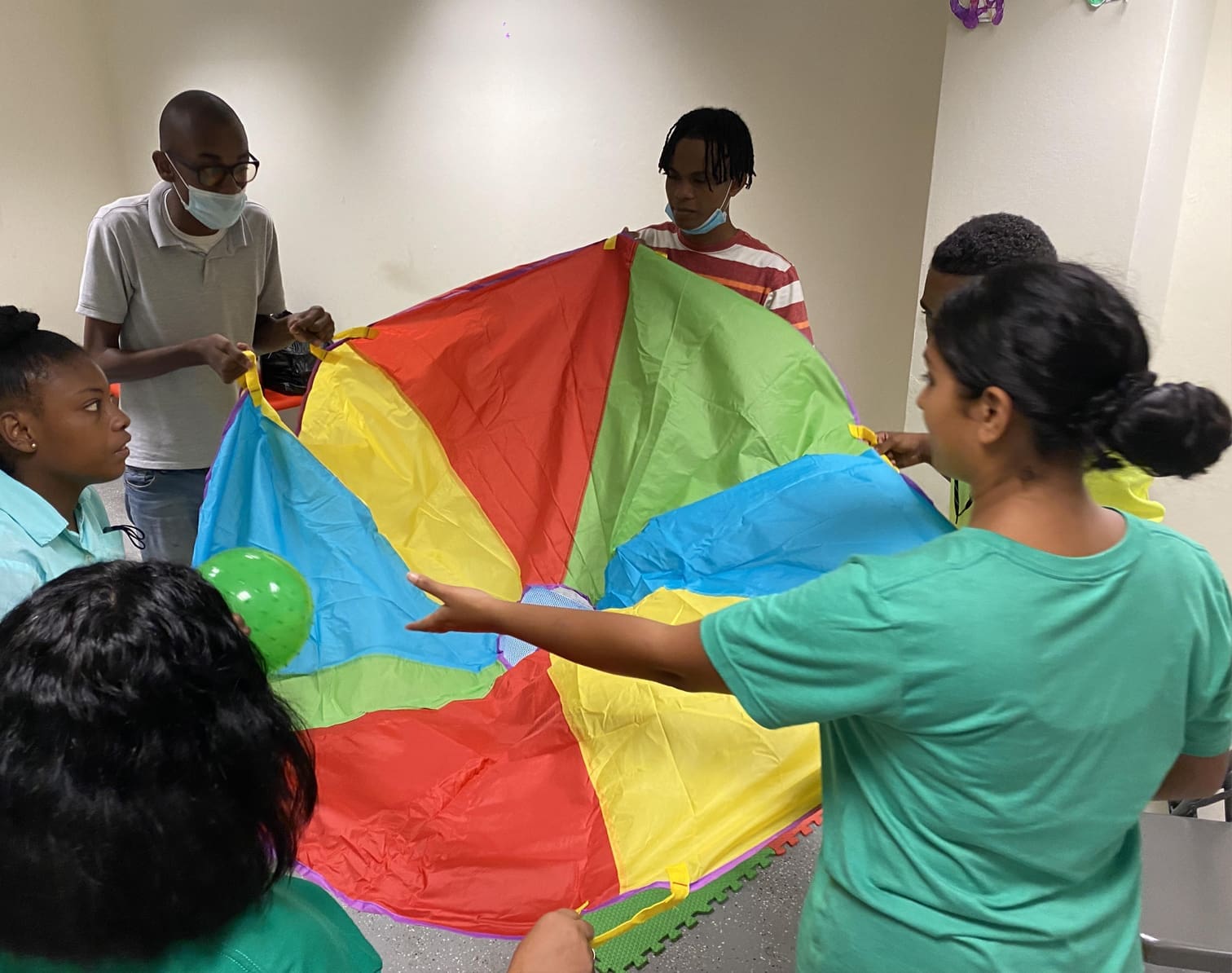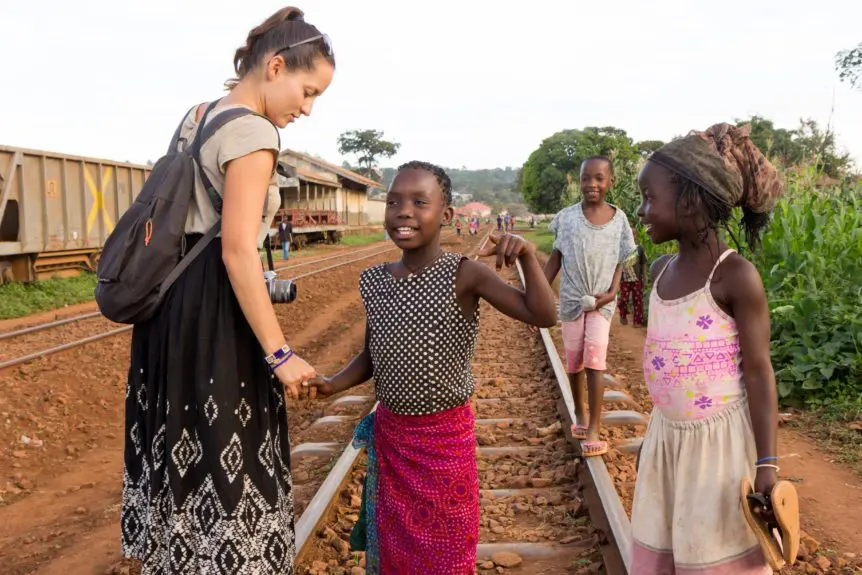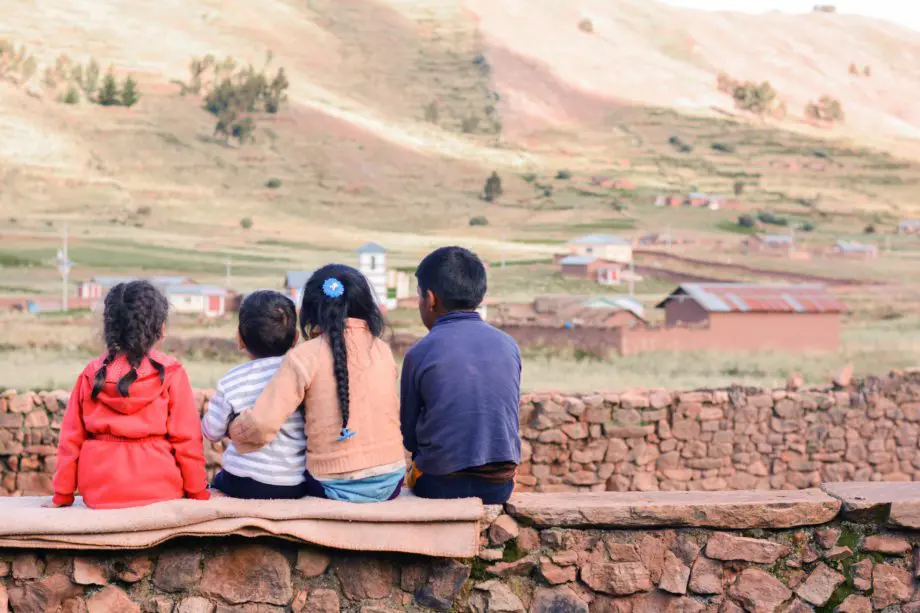Welcome, Cautious Adventurers!
Your student has just announced they want to spend a week overseas delivering pediatric‑therapy services—and your head is already buzzing with what‑ifs. How will they stay healthy? Who’s watching them after clinic hours? Why would any parent say yes to a trip so far from home?
Good news: Volunteer travel isn’t a leap into the unknown when you have a solid safety roadmap. With Therapy Volunteers providing licensed clinicians at every session, 24 / 7 on‑site support, and clear protocols covering everything from airport pickup to evening curfew, first‑time jitters turn into confident excitement. Peace of mind begins long before take‑off, though. It starts with knowing which documents to gather, which vaccines to schedule, what to pack, and which red flags to avoid.
Think of this Parental Safety Checklist for First‑Time Student Volunteers Traveling Abroad as your pre‑flight co‑pilot. Eight straightforward sections guide you through supervision details, health prep, housing standards, daily habits, emergency contacts, money smarts, cultural respect, and a 72‑hour final sweep. By the end, every form will be printed, every number stored, and every question answered—so you can watch your student board that plane not with worry, but with pride.
Ready? Let’s make sure your future therapist travels smart, serves safely, and returns with the life‑changing experience you both want. Below are the eight steps we recommend reviewing before your student boards that plane:
1. Supervision You Can Verify
Safety on any therapy trip abroad begins with the people in charge. Ask your coordinator for the full list of licensed supervisors—names, credentials, and license numbers—plus the phone number of the 24 / 7 program director. A ratio of one clinician for every three to four students meets international field‑placement guidelines and ensures your volunteer’s observation hours will hold weight with graduate programs.
2. Health Preparation Starts at Home
Schedule a travel‑medicine appointment four to six weeks before departure. A clinician will review destination‑specific vaccines, malaria prophylaxis if needed, and infection‑control pointers for pediatric settings. Pack personal prescriptions in original bottles, add a compact first‑aid kit, and upload digital scans of all scripts to the cloud. Simple steps, but they turn unexpected sniffles into a solved problem—not a panicked phone call across time zones.
3. Housing and Transport Standards
A parent’s imagination tends to fill information gaps with worst‑case scenarios. Close those gaps by asking for photos of the residence, a copy of the nightly curfew policy, and the name of the driver meeting your student at the airport. Therapy Volunteers house students in vetted guesthouses with gender‑separate rooms, locked gates, and reliable Wi‑Fi for nightly check‑ins. Seat‑belt‑equipped program vans handle all clinic transfers, eliminating the need for street taxis.
4. Daily Habits That Keep Risk Low
Even the best‑designed program relies on responsible routines. Encourage your student to adopt the buddy system, hydrate with bottled water, dress in closed‑toe shoes and modest scrubs, and respect the 10 PM curfew. Morning and evening check‑ins via a shared WhatsApp group let staff track everyone’s location without hovering.
5. Emergency Communication Plan
Store these numbers in the phone and on a printed card: program director, supervising clinician, local partner hospital, insurance hotline, and U.S. embassy. Agree on a nightly “safe and sound” text to home—thirty seconds that save thirty hours of parental stress if messages ever go silent.
6. Money & Valuables—Less Is Safer
Encourage your volunteer to travel light. A daily cash limit of $60 in small bills, one debit card, and a backup credit card locked in the residence safe are plenty. Flashy jewelry stays home; phones stay tucked away in clinic pockets. Thieves look for obvious targets—minimal valuables make your student an uninteresting one.
7. Cultural & Ethical Awareness
Safety isn’t just physical; it’s reputational. Learning five local phrases, requesting consent before photographing children, and funneling all gifts through clinic staff preserve trust with partner communities. Respectful behavior today means future student cohorts will be welcomed tomorrow.
8. The 72‑Hour Final Sweep
Three days before departure, run one last audit:
- Cloud backups for passport, insurance, and prescriptions
- Printed insurance card packed
- Phone unlocked or international plan activated
- Important numbers on speed dial
- Luggage weight confirmed under airline limits
- Tick each box and the airport drop‑off becomes a celebration, not a nail‑biter.
Take‑Off with Confidence
Following this parental safety checklist for a volunteer trip abroad transforms a hopeful “I think it’s safe” into a confident “I know it’s safe.” Verify supervision, prep for health, inspect housing, instill smart habits, lock down emergency contacts, lighten valuables, practice cultural respect, and complete your 72‑hour sweep. Do that, and you’ll launch your student toward the therapist—and global citizen—they’re eager to become, secure in the knowledge that Therapy Volunteers has safety woven into every mile of the journey.
